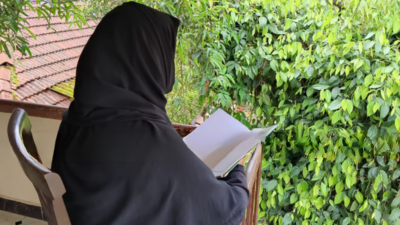The Kerala High Court recently declined to quash criminal proceedings against a man who criticized a Muslim girl for shaking hands with former State Finance Minister TM Thomas Isaac during a public event [Abdul Noushad v. State of Kerala & Anr.].
The man, Abdul Noushad, had claimed that the girl’s actions, who is a law student, amounted to adultery and violated Shariat law.
In an October 1 order, Justice PV Kunhikrishnan emphasized that shaking hands with the Minister was a personal choice made by the girl, and she could not be forced to follow any religious practices against her will. The Court further highlighted that religious practices, especially in Islam, are a matter of personal belief and cannot be imposed on others.
“Religious beliefs are personal. There is no compulsion in religion, especially in Islam. One cannot compel another to follow his religious practice. Religious practice is a personal choice of every citizen of this country. Article 25 of the Constitution of India grants all persons the right to freely profess, practice, and propagate their religion, subject to public order, morality, and health,” the Court stated.
It further clarified that the right to propagate religion does not mean imposing religious practices on others. The Court cited Quranic verses, such as Surah Al-Kafirun (109:6) and Surah Al-Baqarah (2:256), which promote freedom of personal religious choice and declare, “There is no compulsion in religion.”
The case arose from an event organized by Markaz Law College, where the girl, a second-year law student, shook hands with Dr. Isaac after asking him a question on stage. Following the event, a Facebook post and WhatsApp video circulated, portraying the handshake as a violation of Shariat law. In one of the videos, Noushad accused the girl of adultery.
The girl later filed a complaint, leading to Noushad being charged under Section 153 of the Indian Penal Code (provocation with intent to cause a riot) and Section 119(a) of the Kerala Police Act (degrading the dignity of women). Noushad sought to have the charges quashed, arguing that they were not applicable in this case. However, the Court noted that he did not deny making the remarks.
The Court also stressed that societal beliefs and religious practices must align with the Indian Constitution, which takes precedence over religious customs. “No religious belief is above the Constitution, and the Constitution is supreme,” the Court said, adding that society has a duty to support the girl in exercising her personal freedom of religious belief.
Thus, the Court dismissed Noushad’s petition and directed the trial court to expedite the case.
Noushad was represented by advocate VA Vinod, while Senior Public Prosecutor Renjith TR appeared for the State.

















